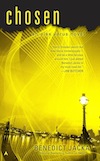And part 2 of the comment clearout. Here’s the last lot.
Comment from Orion:
two suggestions.. an ask Alex to give Luna a break, she probably doesn’t even get paid the poor thing.
And a shape shifting encyclopaedia entry 🙂
I completely endorse this suggestion. Alex, you reading this?
(And no, I don’t get paid. Well, not for this. Specifically.)
Comment from Ellery:
This might be an Ask Luna… Just about all the Light Council mages, both the Council members and the Keepers, seem to be male. Are there actually fewer female mages, or is it more a case of the old boys’ network?
Now this one’s interesting.
It’s definitely not true that there are fewer female mages than male ones, at least in terms of potential. In fact, from what I’ve heard, there are actually more female novices. The Light apprentice program skews towards girls, not boys, too – maybe 55 percent or so.
However, the further up the ranks you go, the higher the proportion tilts the other way. There are at least twice as many male Keepers as female ones, and the command positions are tilted even more. And by the time you get up to the Junior and Senior Council, I think there are only about 1 or 2 women on the whole thing.
The why of it is a lot harder to figure out – it’s one of those things that everyone has an opinion on and that they love to argue about at parties, but it’s mostly just talk. The old boys’ network definitely has something to do with it, but I don’t think it’s the only reason.
Comment from Locnil:
Uh, ok, so where can we see her answers to the questions?
How you can figure out the comments but not the rest of the site . . .
Comment from Locnil:
So, we know Alex has no qualms about going gambling/playing the lotto to make cash. What about mages with other abilities? I mean, some of the articles already touched on this tangent, like how earth mages are builders and architects and fire mages just extort money, but they never really went into detail. And there’re some bits which seem a bit complex – a mind mage could just walk into a bank and make them hand over a couple million dollars, but that’s the sort of thing that would draw major attention and piss off the Isolationists and Directors (those who aren’t doing the same thing that is). Apart from being mercenaries for hire or just doing what fire mages do, death mages, as you pointed out, pretty much lack any mundane ability whatsoever (or if they do, then I’d like to hear about it too). Also, a lot of mages, like space mages and time mages, are mentioned as usually making their income working for other mages, but what do they do if no other mage is willing to hire them, or if no other local mages have any real income-generating ability either? Space mages could probably go with burglary, but time mages seem kinda screwed in that regard.
All of the magic types have their ways to earn a living, but some have it easier than others.
Space mages are couriers. They can move anything you want from anywhere, to anywhere. If you can’t think of a way to make money with that, you’re not trying.
Time mages actually have it easiest of all. They have access to all kinds of information and all they have to do is sell it. If they just want quick cash it’s easy for them to get someone’s password or details just by wandering into a room where that guy used to be – they never need to, though, because most of the time they get employed by the Council or the Keeper orders directly, and if the Council doesn’t want them someone else will. Having a time mage on retainer means never having to do an investigation the mundane way.
Living mages usually figure out some sort of people-oriented jobs. I know at least one mind mage who works as a psychologist, and at least one enchantress who’s a vamp (what’s that, you’re in love with me and want to give me everything you own?). Life mages heal rich people for money. Death mages are the exception – they’re more like elementalists.
Elementalists would have the hardest time, except for the fact that they’re usually on the top of mage society and they can get other mages to do what they can’t. Light elemental mages tend to band together in sort of cartels, with investments and properties. How exactly they turn their magic into money doesn’t get talked about much, but if the rumours are true a lot of it’s ‘protection’ services. Dark mages do the same, they’re just more open about it.


